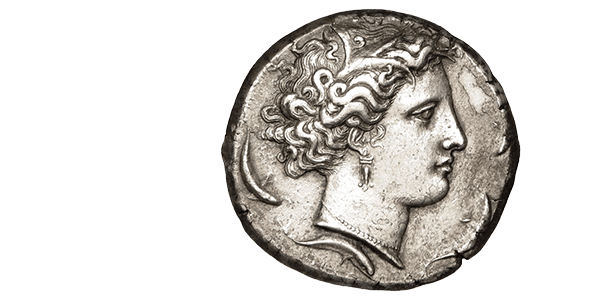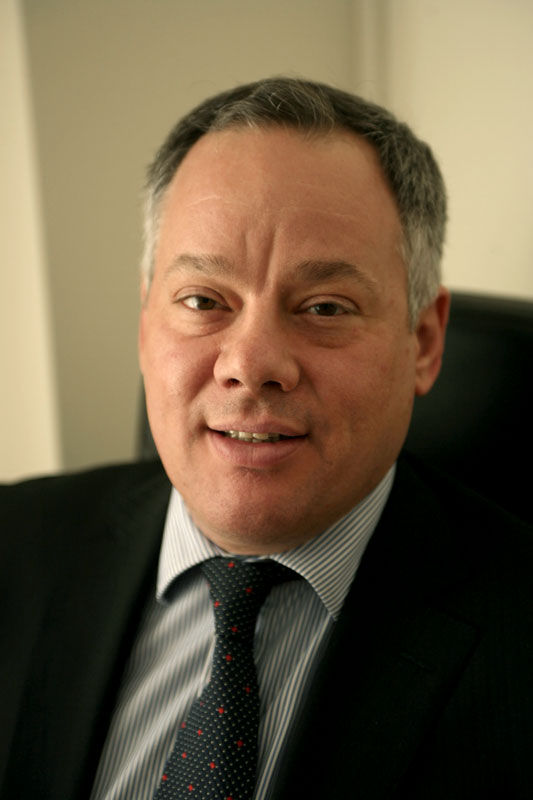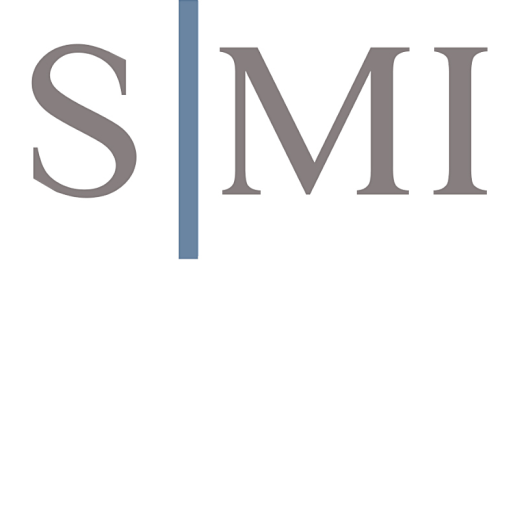



Syracuse, on the eastern shore of Sicily, was the richest, most powerful, and most successful of all the colonies established by the ancient Greeks around the Mediterranean Sea. Main is the river that runs through Frankfurt, the financial hub of Germany and continental Europe.
Syracuse Main, Inc. is an investment company that is developing the concept of creating “business colonies” in Europe and North America, by financing the transplantation of promising small and medium sized companies from their place of birth to bigger markets. The company is raising its first fund in Germany, where we will have a solid and permanent presence.
The founding team of Syracuse Main, Inc., led by Perikles Konstantinides, has more than a century of combined track record in investment banking, corporate finance, risk management, capital raising, marketing, and advertising, in western Europe, the Americas and southeast Asia. Our experience includes both the very large, publicly listed multinational companies as well as small and medium companies in three continents.
The world economy is undergoing a seismic shift and there are more opportunities today to profit and make a difference than there have existed in the history of the world. The computer revolution is entering its third stage, with the advent of intelligent homes, self driving vehicles, and artificial intelligence. The world of commerce is moving online at an accelerating pace and soon there will be little or no physical stores left in many segments of retail. The world of energy is upended by battery power and renewables. And the emergence of new business paradigms in the finance space present countless opportunities for creating the dominant financial houses of the future.
Syracuse Main, Inc. is moving strategically to position itself in some of these markets, with an emphasis in financial technology, software, and consumer products.

"The core competence of the management team of SMI is our ease of straddling countries and cultures, and our strong sense of creating economic value optimized for financial markets."
Still, perhaps 80-90% of the total returns to capital generated by successful companies happen from the day the company was established to the day it listed its shares on an exchange. Investors in a company’s publicly listed securities, on average, enjoy relatively small returns. Most of the economic value is enjoyed by founders and early investors.
The team of Syracuse Main has secured finance, has restructured and has dealt with SMEs for a considerable part of our careers. Although we have experienced the particular difficulties these companies face in every major economy of the world, a common theme is limited risk appetite due to limited size and finance. The job of SMI is to provide the impetus for rapid growth by sharing the risk and committing capital to growth opportunities.

Contrary to most other private equity funds, the management team of Syracuse Main, Inc. does not find opportunities to invest in after it has raised a fund. Instead, we raise money to invest in a portfolio we have already developed and negotiated. The investment portfolio is pretty much known in advance and is the product of a development process that has lasted for the last 3 years.
Except for very few specialized cases, the fund will acquire majority stakes in its portfolio companies and will appoint the Board of Directors and top management.
We will manage the fund for 8 years, after which we will return the capital and the profits to our Limited Partners.

We recognize that extraordinary economic value is almost always created as a result of innovation, which either disrupts an existing industry or creates a brand new space that did not exist before. An example of the first idea is the iPhone. An example of the second idea is Tesla. Almost each one of our portfolio investments are in companies and products that disrupt and redefine their industry segment.
In particular, in the finance industry, we are living in an age of unprecedented revolutionary change that is defined by the low cost of entry and the tremendous economies of scale of the internet and the smartphone. Most of the innovation so far has been in payment systems and retail banking. We have focused our attention and efforts on the equity side of the investment ledger, the market where we have the most experience in. For a lot of very good reasons, we think that this is the most interesting corner of the fintech space and, curiously, the one with the least amount of serious competition.
The management team has many years’ experience in investment banking and consulting, including a heavy emphasis on cross border transactions. There is no shortage of great ideas around the world that could expand globally. In most cases, what keeps great ideas from blossoming is the small size of the company that owns the business in its home country. It is exceedingly difficult for small companies to grow, let alone reach out outside their home country. This is a great investment opportunity that promises outsized returns.
In the majority of cases, our strategy is to invest in “opportunities”, not “companies” and/or “products”. This may sound a little strange and unorthodox, but it has a real effect in how we approach the construction of our portfolio. A well-run company that produces well-made products at competitive prices is not, by itself, a candidate for an investment. What needs to be true also is a well-defined market opportunity that the company in question can exploit and, in the process, create extraordinary economic value for its shareholders. For example, a market gap, or a new market that does not exist today, or a twist in an existing product or service that is so innovative that it will take years for the competition to catch up. The investment philosophy here is disruption, paradigm shift, and creation of new markets.
I would say that the main difference is that the investment portfolio here is developed before any capital is raised. Most other alternative investment funds commit to investing in the industry (e.g. technology or pharmaceuticals or energy) or the security (e.g. mezzanine or medium-term notes or convertible bonds) in which the management team has experience in. The funds are raised and then the management team starts looking for appropriate investments, which must be made within a set period of a few years after raising the fund. In this case, the capital will be invested in one year or less, because we the deal pipeline is already developed and the preliminary work is complete.
Contrary to the usual practice in the industry, the management team is not passive recipients and reviewers of business plans. We have spent, collectively, around 100 years in investment banking, in three continents, in some of the top investment banking houses, and we have informed views of industry trends, and a wide network. There is a high-level view of the markets that we have experience in, and we are in a position to know the gaps and the opportunities that exist. In addition, the source of market and industry intelligence and management talent to be deployed in the portfolio companies is a wide and deep network of contacts, built over decades.
In some cases, investments will be in existing companies that have developed products or services that will grow faster and bigger by being transplanted in a larger market. In other cases, a management team will be assembled, and a startup company will be seeded to exploit the market opportunity that exists in the particular market. In a few cases, the existing management team of a portfolio company will be strengthened with managers picked by the management team and the new team will be moved to the larger market.
In many cases, the team has developed innovations that have eluded incumbents, which will shift the paradigm of doing business in that industry. In many instances it takes an outsider with a fresh eye to see what people steeped in a tradition cannot see. The team has developed or unearthed a number of synergies, economic efficiencies, and innovations that will drive economic value creation in about three fourths of the portfolio. The rest of the portfolio investments rely on value creation through mergers and going downstream to maximize profit margins.
There are two areas of particular strength:
The European Union, the United States, and Canada together account for approximately 50% of world GDP. So, by focusing on just 5-6 countries, our target market is more than 40% of the world’s income and wealth. These are the largest and richest markets in the world. If you are investing for maximum return, you cannot be anywhere else. This is where starting a new business is the easiest. This is where consumers have the most disposable income. This is where people adopt more easily new concepts, products, and services. It is no accident that the US, Canada and the top countries in the European Union are the top global destinations for Foreign Direct Investment: they are the most hospitable business environments, where it is the easiest to succeed.
Of course. In more than 90% of the portfolio, all of the following conditions must be met:
One of the portfolio companies has developed a business process that allows individuals with very small savings to participate in venture capital investments, in the process creating a perpetual venture capital fund. A technology company has developed an innovative platform that may change the way companies sell their products worldwide. A fintech company we want to invest in is one of the leading finance providers in one of the most lucrative sectors of the commodities markets. Another, an industrial company, is the world’s only manufacturer of frost resistant terracotta, and plans to enter markets in northern Europe and America, where today there are no outdoor terracotta planters because of the cold winter weather. Another company we are looking at has identified never-before-realized economies of scale in production that promise to disrupt a trendy sub-sector of the restaurant industry.
Our investment philosophy and business ethics are driven by a strong and deep sense of values and ethics honed over many years of career experience. Out of everything that we know and believe in, the most important driver of our thinking and behavior is this:
All companies in all industries depend on and succeed or fail by their people – more than technology or know-how or economics.
To give an example from an industry with a very low rate of innovation that uses uniform technology across the sector, the difference between a successful and a failing steel manufacturer is the people it employs: management and workers.
In another example, the difference between a successful and a mediocre developer of ERP software is the programming ability of its employees. The same is true for every industry.
A company’s management and employees are not “factors of production.” They are the company’s core competence, its competitive advantage. All successful business leaders of the last 50 years, when asked what is their secret of success, they emphasize hiring and people management practices. Even in industries that employ low skilled workers, a key difference between highly valued companies and laggards is their human resources practices. Successful companies offer careers, not jobs. Successful companies treat their employees with respect, not as interchangeable cogs in a machine.
We believe that this is the key to successful management. We intend to approach the portfolio companies on the basis of building excellent management teams and providing employees with a fulfilling work environment that combines fair compensation, job satisfaction, and advancement prospects. We believe that this will be the key to success for our portfolio companies, which will lead to maximum returns for our investors.
Of course. The investments we intend to make were developed over the last four years, which were years of turmoil globally, mainly due to the pandemic. A number of the companies we intend to invest in have grown considerably larger now, and they have attracted the interest of private and institutional investors who have proposed to some of them to invest in their equity. We are aware of this, as we maintain a very close relationship with these companies, and we provide advice and help in any way we can.
In every case, these companies have refused to accept capital from other sources. In every case, they told us, they want to wait for an investment from us because they only want to move to the future with us. They all understand that an equity investor, especially an investor who buys a significant part of the company’s equity, is really a partner, and partnerships can be tricky things. The companies we intend to invest in trust us to be able and useful partners for years to come. For us, being told that we are preferred partners and to have companies refuse to accept hard cash from anyone else, was a great moment of personal and professional satisfaction. And a validation of our business practices.
The world changed dramatically in 2020. We faced a deadly pandemic, which was mostly created from our careless interaction with our natural environment. Combine this catastrophe with the looming climate change crisis, and it becomes painfully obvious that we are entering a new political, social, and economic era that will change more facets of our lives.
As 2022 rolls in, governments in our investment region seem conscious of and focused on a shift to a more environmentally-conscious future. So, in that respect, we expect the transition to the new era to be a little less dramatic for our portfolio.
Although Canada is making decisions on these matters a lot more like Europe than like the US, the American market remains the biggest single, frictionless market in the world, with off-the-charts consumer spending that helps companies grow fast and big. Despite the turmoil experienced in America throughout 2020, most parties in the US are committed to free market capitalism and traditionally adopt policies to facilitate economic growth. This is an ideal environment for our purposes, and we will watch closely how the situation in America evolves.
The most obvious effect of the pandemic for us so far has been a reassessment of our intended investments. Our fintech, financial, software, and industrial investments are largely unaffected. Investments in tourism and transportation are out. Investments in restaurant chains will proceed only if they can thrive by emphasizing takeout, delivery, and food truck sales. Investments in consumer retail will have to be re-evaluated. Any technology that relies on online delivery and distribution is in.
Unfortunately, the pandemic will lead us to emphasize automation over employment, and atomized delivery and distribution. One of the hardest hit sectors from this crisis will be commercial real estate, because social distancing will drive down traditional retail revenues and, as a consequence, real estate investment yields. Fortunately, our portfolio companies plan to rent not own, and we have no plans to invest in real estate, in any form.